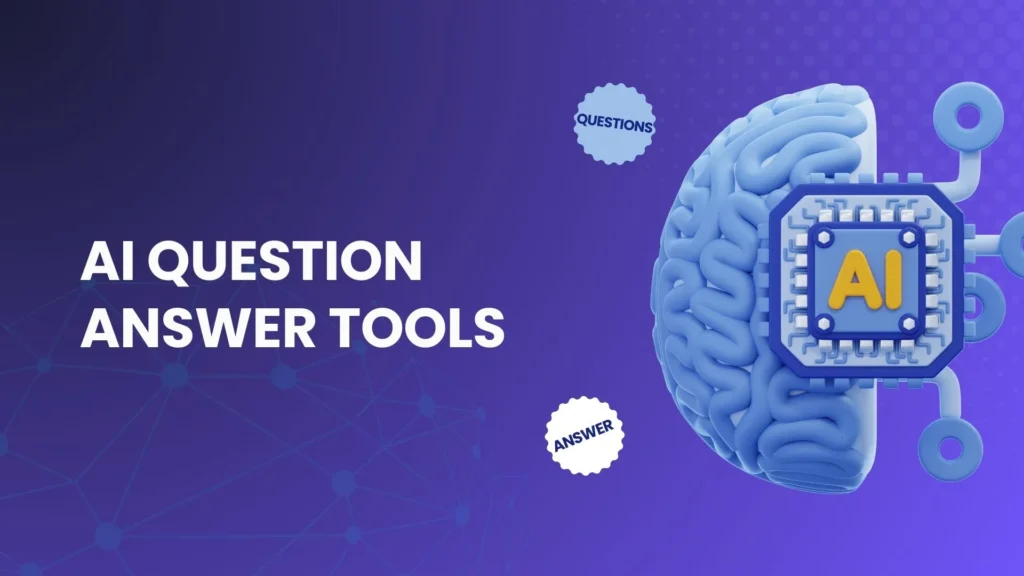Have you ever wished your app or website could respond to inquiries instantaneously, like a human?
The good news is that it can.
AI question-answer tools have made it possible to handle complex knowledge jobs, assist users, and respond to consumer inquiries in a matter of seconds without requiring human labor. AI tools can help whether you are managing an e-commerce business, running a SaaS startup, or simply want your audience to receive quick responses.
The top AI question-answer tools of 2025 will be discussed in this guide, along with their functions and how to choose the best one for your company.
What Are AI Question Answer Tools?
Software programs that use artificial intelligence (such as machine learning (ML) and natural language processing (NLP) to comprehend user inquiries and provide precise, human-like responses are known as AI Question Answer Tools.
They can:
- Power chatbots for websites
- Answer voice instructions
- Retrieve data from databases or documents.
- Assist consumers in finding solutions quickly—no need for manual searching
Consider them intelligent helpers who are always up to date on the latest information.
Top AI Question Answer Tools for 2025
AI Question Answer Tool #1: HeyeveAI
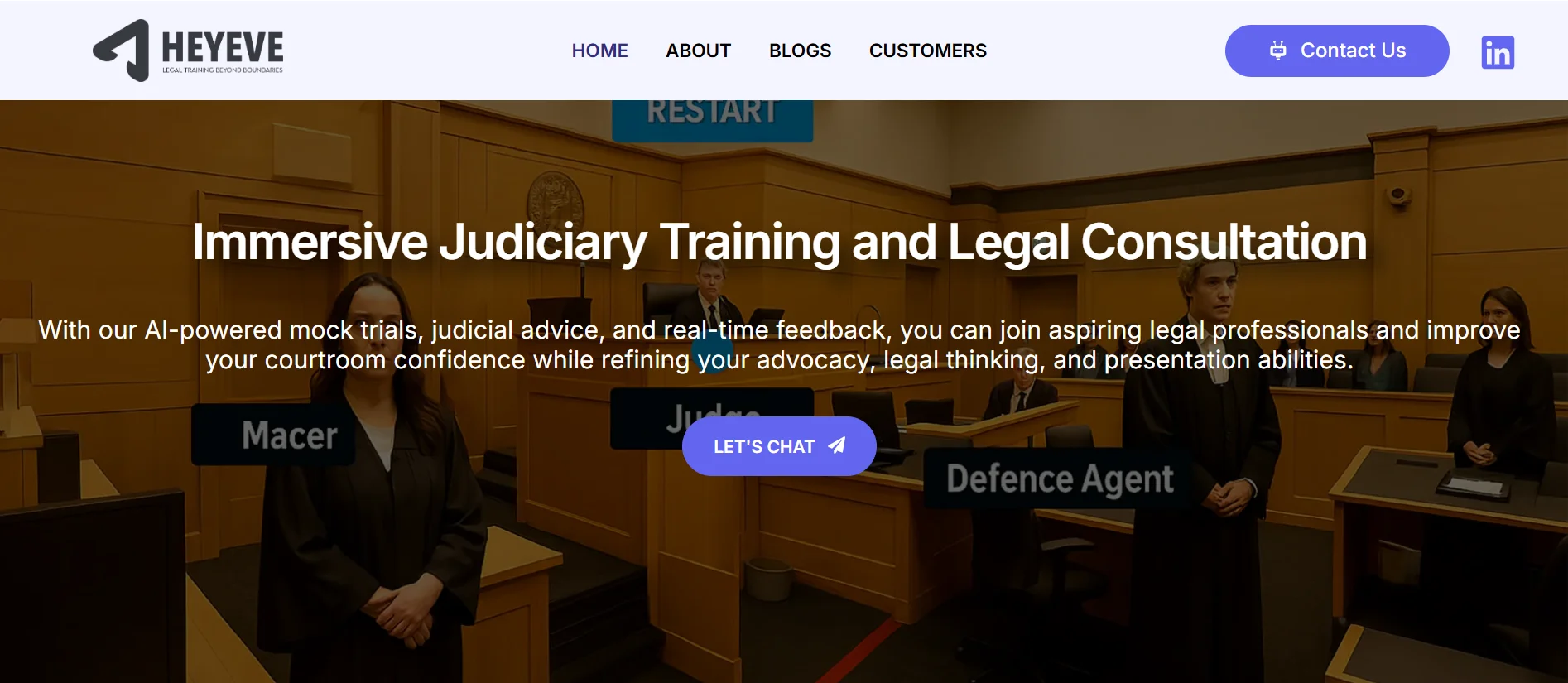
HeyeveAI represents a contemporary voice-activated AI chatbot assistant that operates on websites and landing pages. It stands out because it combines speech and hearing functionality with live interactive dialogue support, which produces human-like experiences for users. The HeyeveAI system immediately guides website visitors who need site navigation direction or answer discovery, or decision support. Marketers and SaaS founders, together with service providers should utilize this tool for its ability to improve customer interactions while minimizing support staff activity volumes.
AI Question Answer Tool #2: AskAI
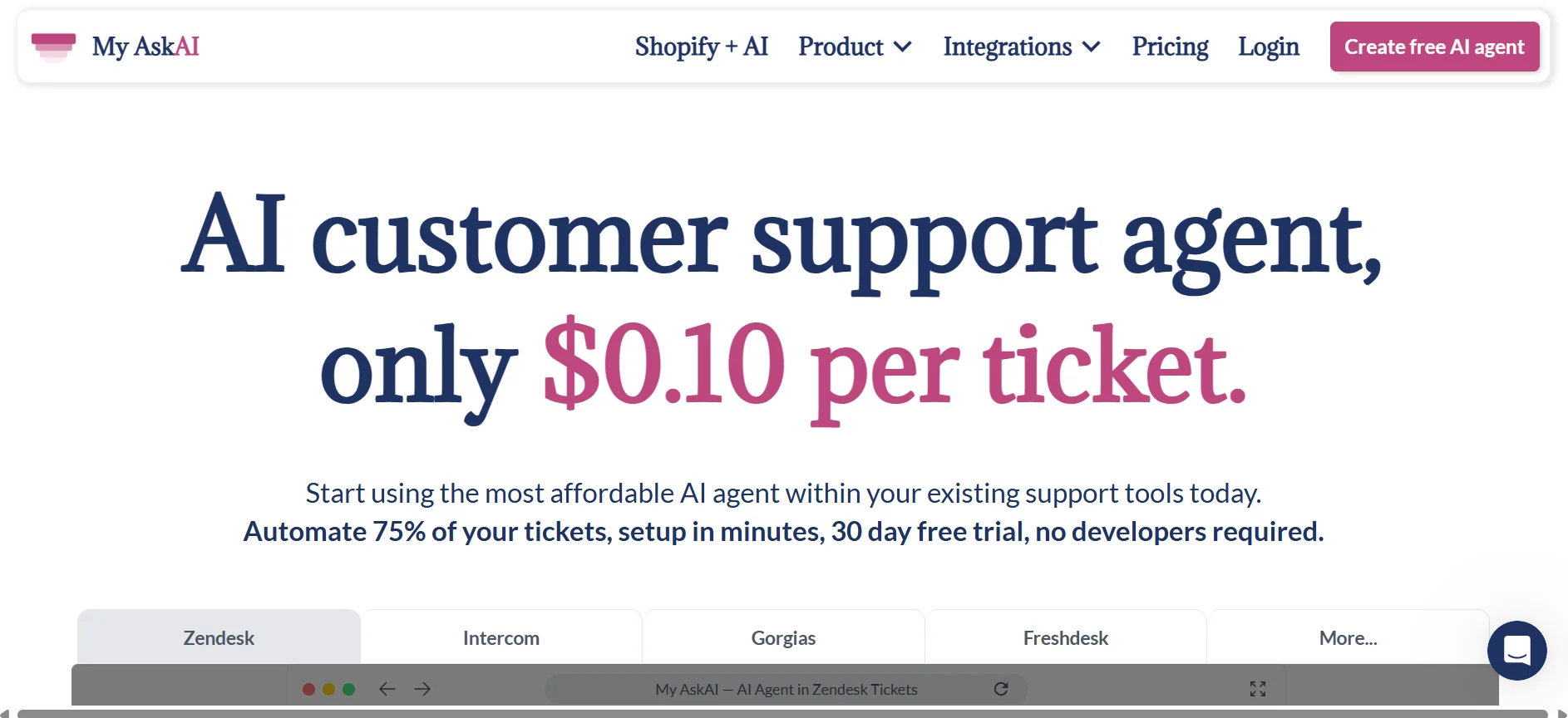
AskAI gives users the ability to create intelligent question answering systems from any combination of internal texts, Notion pages, knowledge repositories and website material. Users obtain dependable quick answers from the system which draws solutions directly from their submitted data rather than AI-generated generalizations. The AskAI solution provides instant answers to both employees and end-users by avoiding them from browsing through multiple pages or files.
AI Question Answer Tool #3: SiteGPT
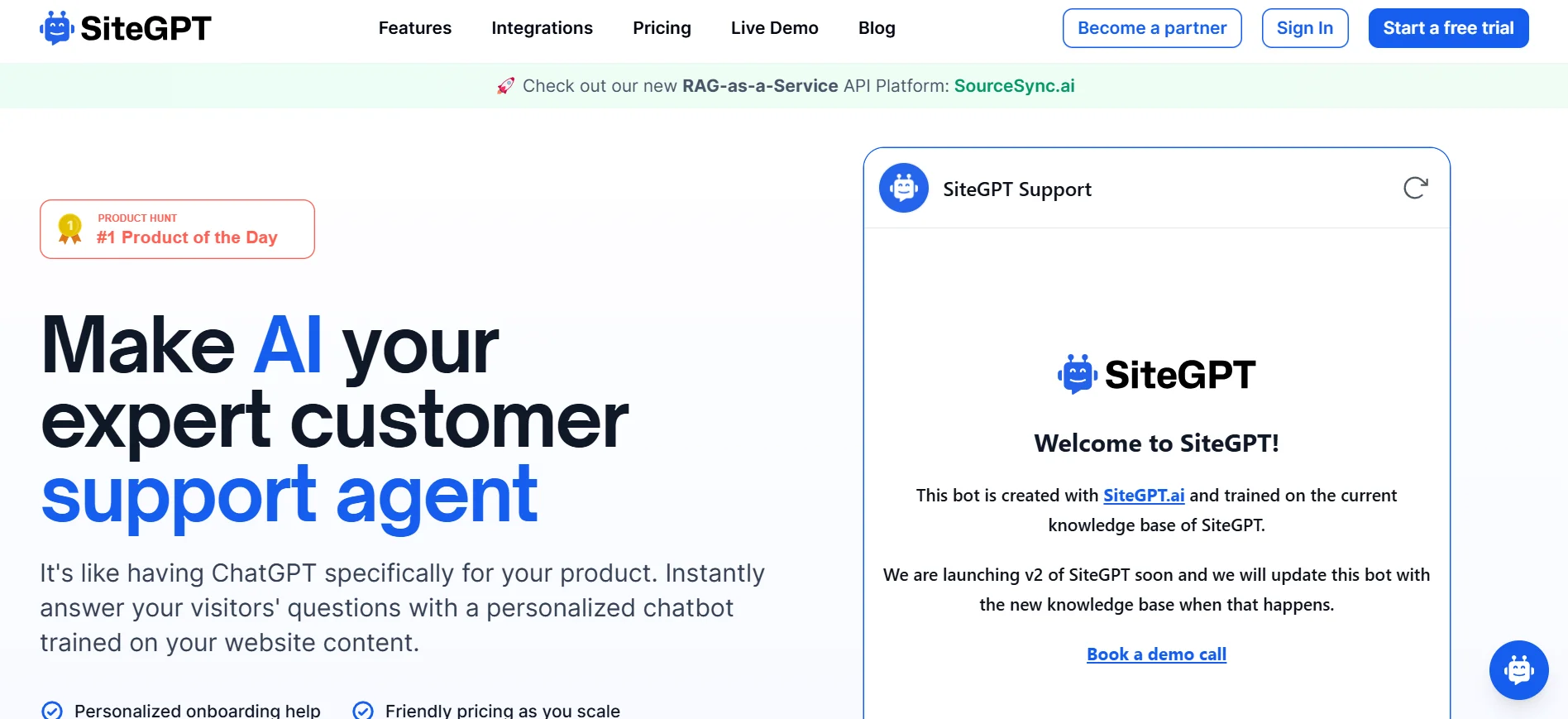
SiteGPT delivers a simple solution that converts any existing website into an operational AI chatbot system. Open your SiteGPT account and feed your domain URL for the tool to generate a Q&A assistant capable of answering visitor questions through your site content. SiteGPT provides an outstanding no-code AI solution for businesses of all sizes and websites with extensive content, which combines live visitor assistance with customer support reduction and increased user engagement.
AI Question Answer Tool #4: Copilot.Live
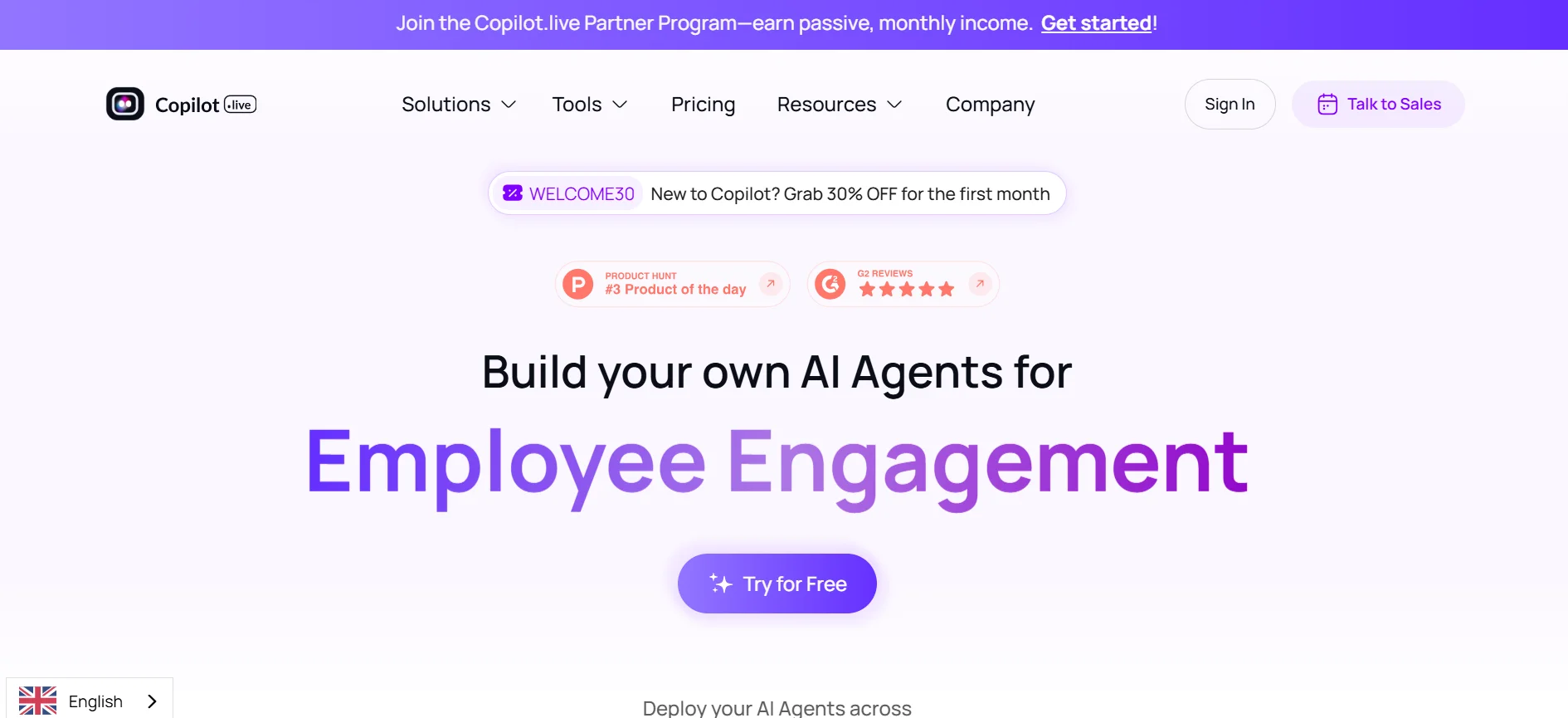
Your users can find answers to their questions, execute tasks, and master your system while asking questions through the embedded AI co-pilot feature of Copilot.Live. The platform proves beneficial for software as a service applications and tools containing various features or demanding training procedures. These guidelines within the app framework direct users, generate substantial experience improvements, and substantial declines in technical support requests.
AI Question Answer Tool #5: IBM Watson Assistant
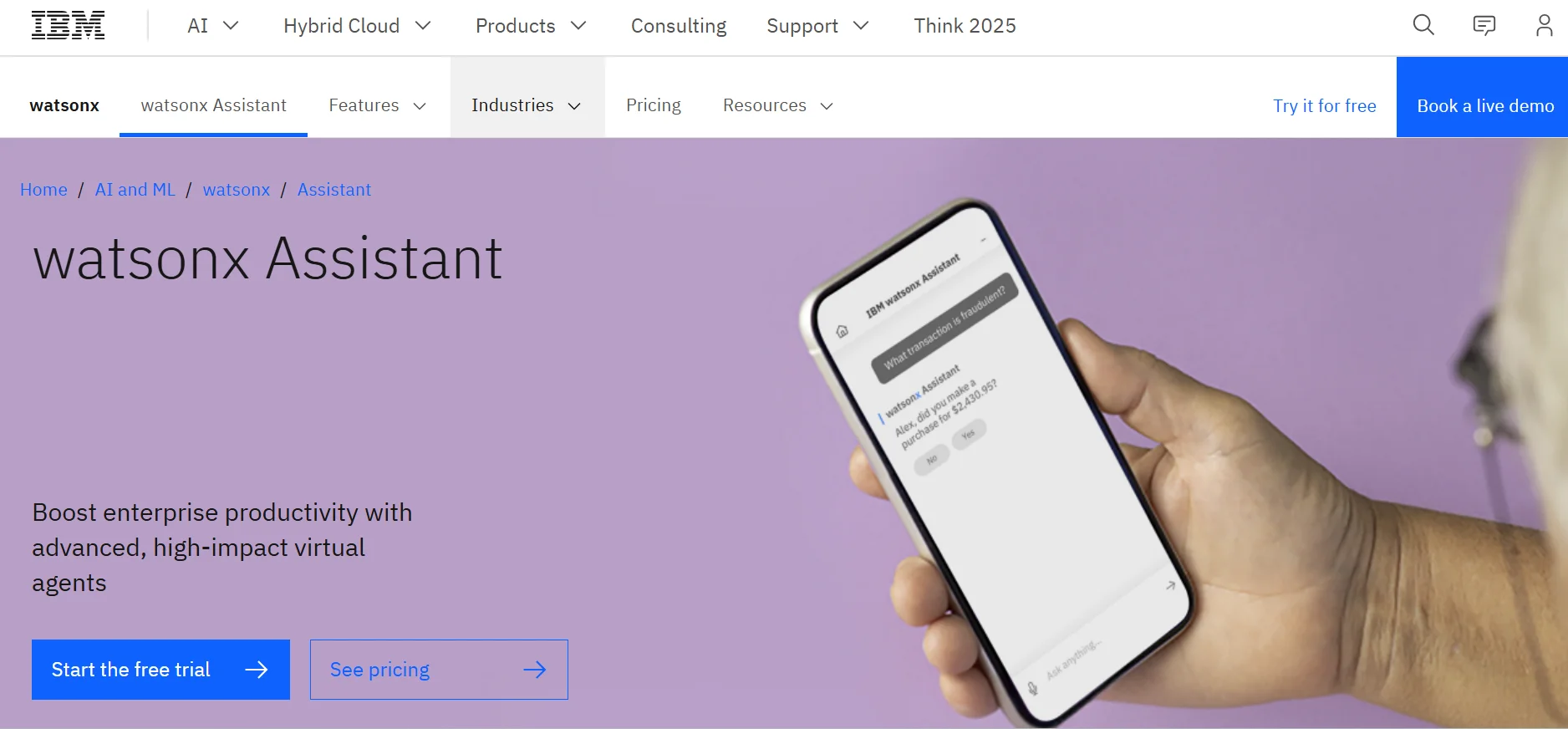
The enterprise-grade platform known as IBM Watson Assistant provides secured, intelligent question-answering capabilities that major global organizations trust. IBM Watson Assistant depends on the company’s exclusive NLP and machine learning technologies to process user intent while delivering precise solutions across website pages, mobile applications, and messaging features. The platform demonstrates excellence when processing large-scale operations while operating across several channels and delivering multilingual solutions, which makes it suitable for organizations in the healthcare, banking, and retail sectors.
AI Question Answer Tool #6: Google Cloud AI (Vertex AI Search)
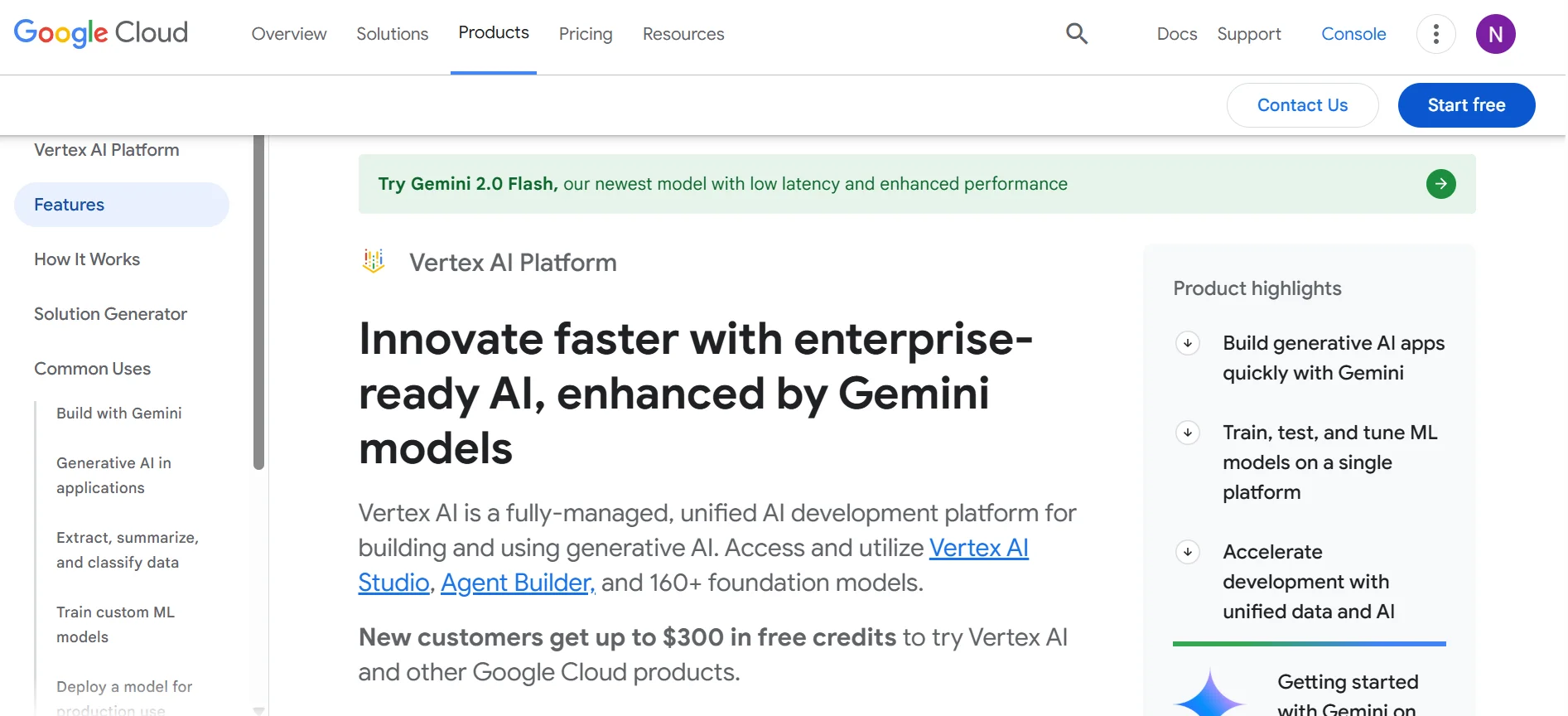
Enterprise businesses that require quick appropriate answers within extensive knowledge bases should use Google’s Vertex AI Search solution for its advanced semantic search and Question and Answer features. This system stands out for its ability to manage large datasets with exact precision, which makes it suitable for enterprise applications, product catalogs, and document-based functions. In both help center installations and team search development projects, Vertex AI provides reliable capabilities for users to obtain their required resources effortlessly.
Suggested Read: https://heyeve.ai/blogs/top-ai-chatbot-assistant/
AI Question Answer Tool #7: Microsoft Azure Cognitive Services
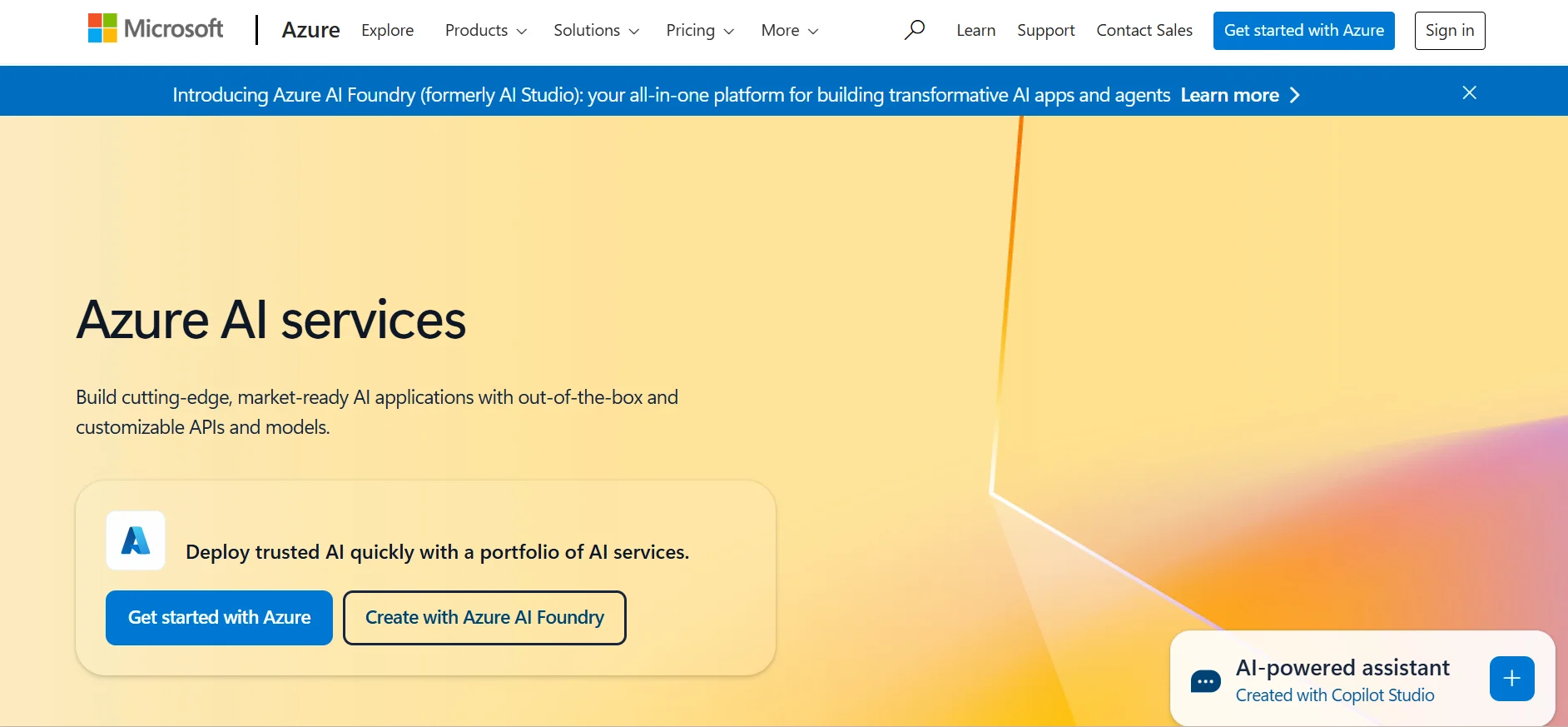
The Q&A systems built by Azure Cognitive Services allow users to develop intelligent solutions that utilize their existing content through their available tools. The platform enables NLP models to extract information from documents, FAQs, and databases to respond to both chatbots and enterprise-level tools like Teams and Outlook. The secure platform, together with its compliance features, makes it an established solution preferred by businesses that work with sensitive data.
AI Question Answer Tool #8: Amazon Lex
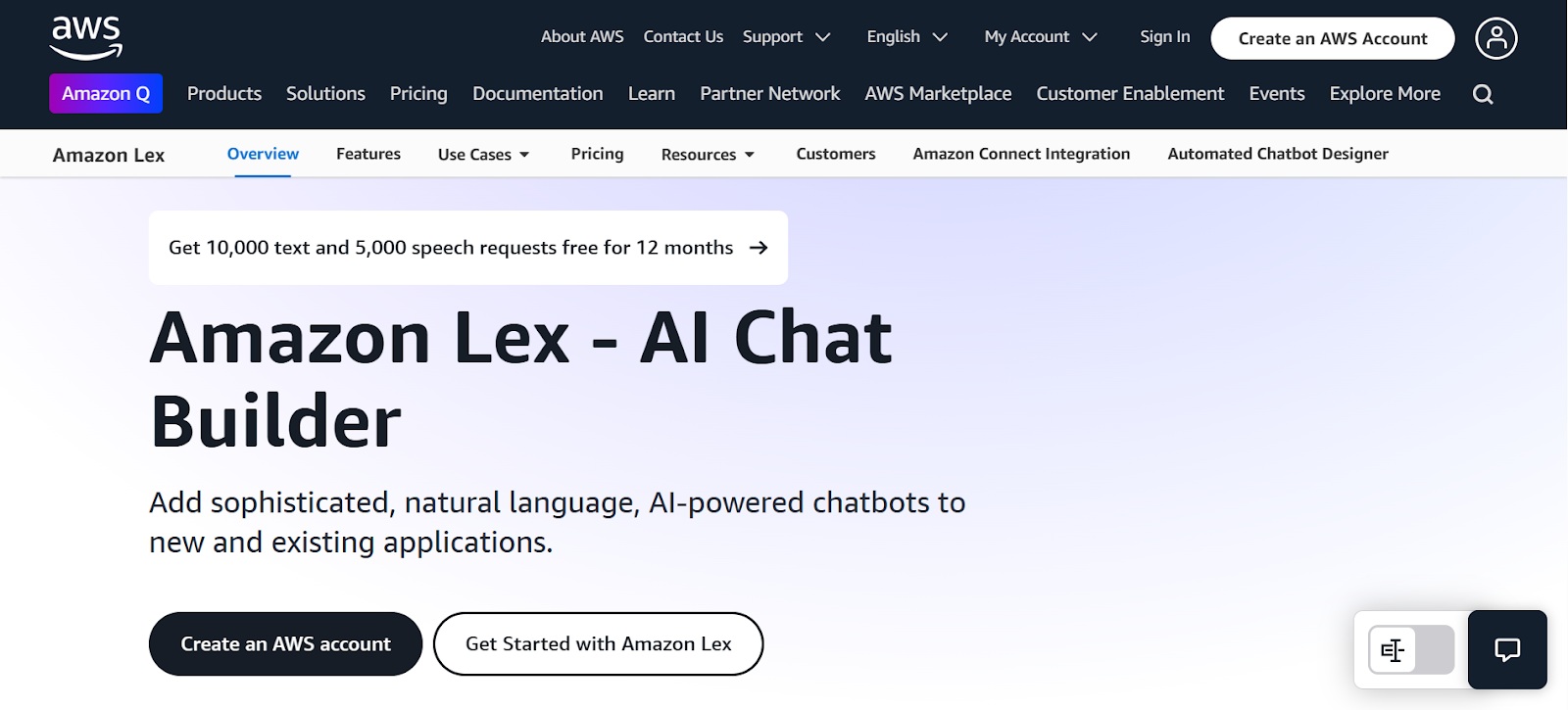
The proprietary AI service known as Amazon Lex operates identically to the system that enables the Alexa functionality and enables developers to design voice and text-based conversational interfaces. AWS customers receive integrated features including speech recognition, natural language processing capabilities and AWS services compatibility. The system provides exceptional value to enterprises creating voice assistance solutions or virtual agent systems, along with interactive customer support capabilities that expand with cloud technology.
AI Question Answer Tool #9: Originality.AI
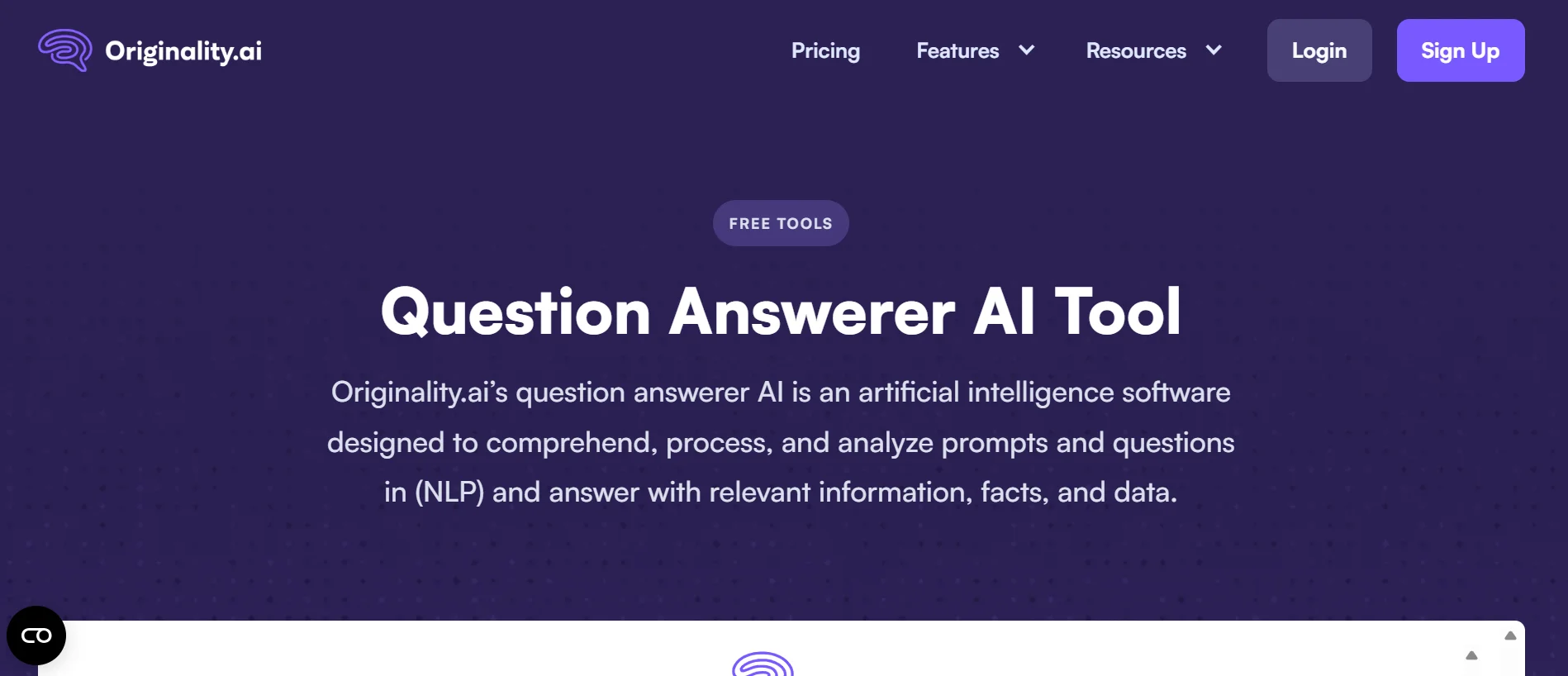
Originality.AI launched as plagiarism and AI content detection software before developing its Q&A functionality for accurate answer verification based on source authenticity. Specific reference-based accuracy suits content marketers together with educational institutions and research fields that require trustworthy information drawn directly from defined documents. This platform demonstrates a preference for content security rather than fast responses while targeting the emerging demand for AI content assessment.
AI Question Answer Tool #10: Dialogflow by Google
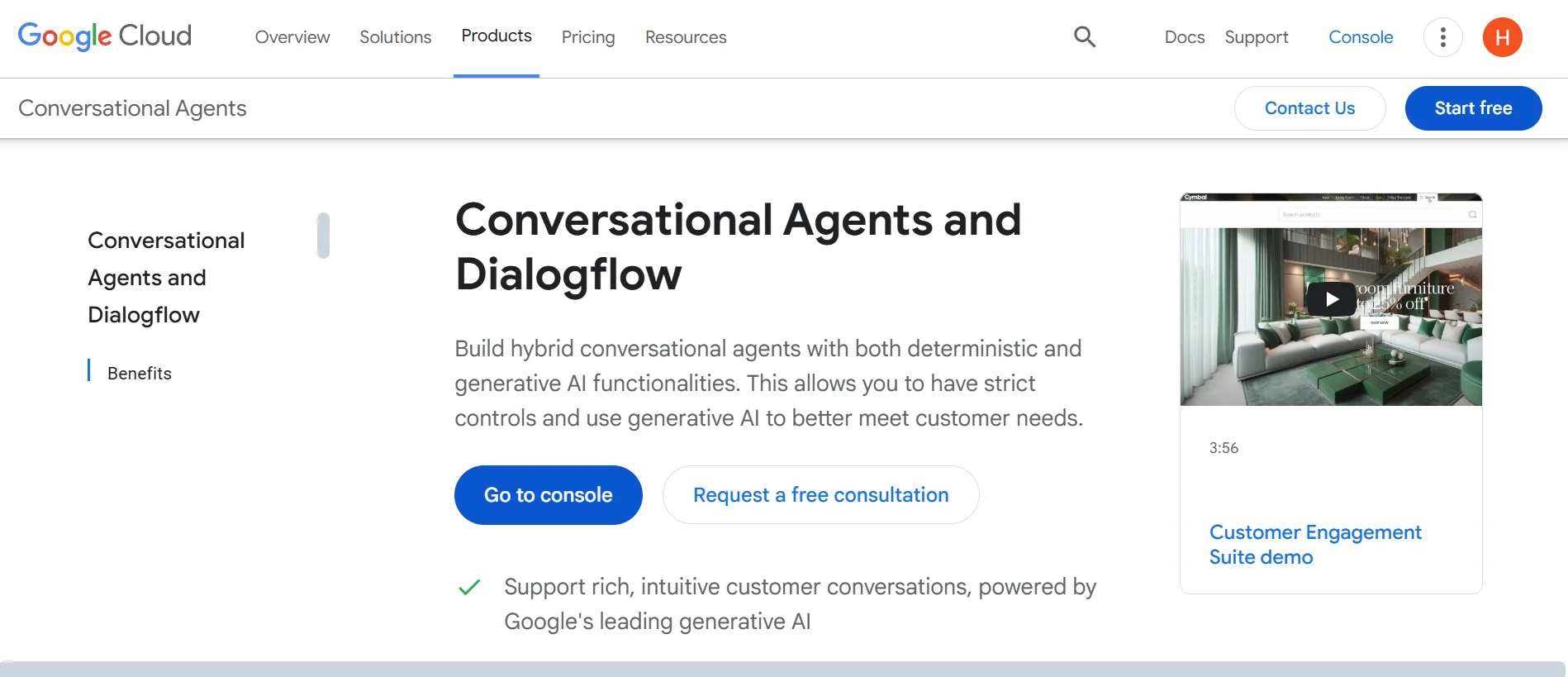
Building both conversational applications and question-and-answer bots becomes possible through Dialogflow’s highly adaptable and vigorous platform. This platform enables continuous dialogue sequences while managing context information across platforms that include Google Assistant, along with Slack and Messenger, and others. Developers choose this platform because it offers flexibility, yet businesses prefer it because it provides reliable multilingual functionality. Users who need their smart assistant to understand deep contextual information should choose Dialogflow for their AI solution.
AI Question Answer Tool #11: Rasa Open Source
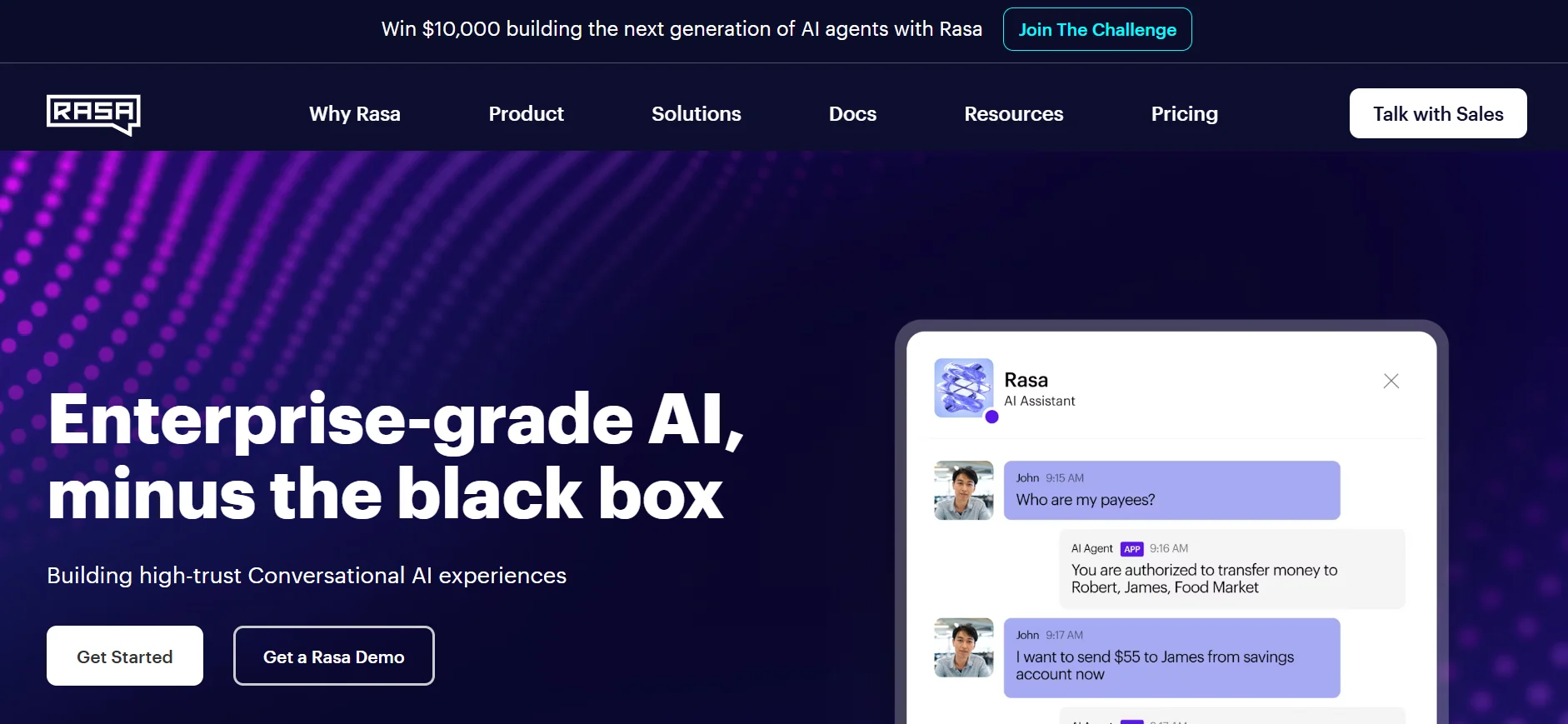
Teams requiring absolute control over their AI Question Answer system should choose Rasa because it provides an open-source framework. Rasa provides enterprises with Python-based frameworks that let them exercise full customization and train their models on private data while meeting local deployment needs. The Developer community holds a high level of respect for this tool because it helps developers create secure and scalable conversational AI systems despite its technical complexity.
AI Question Answer Tool #12: Clarifai AI Platform
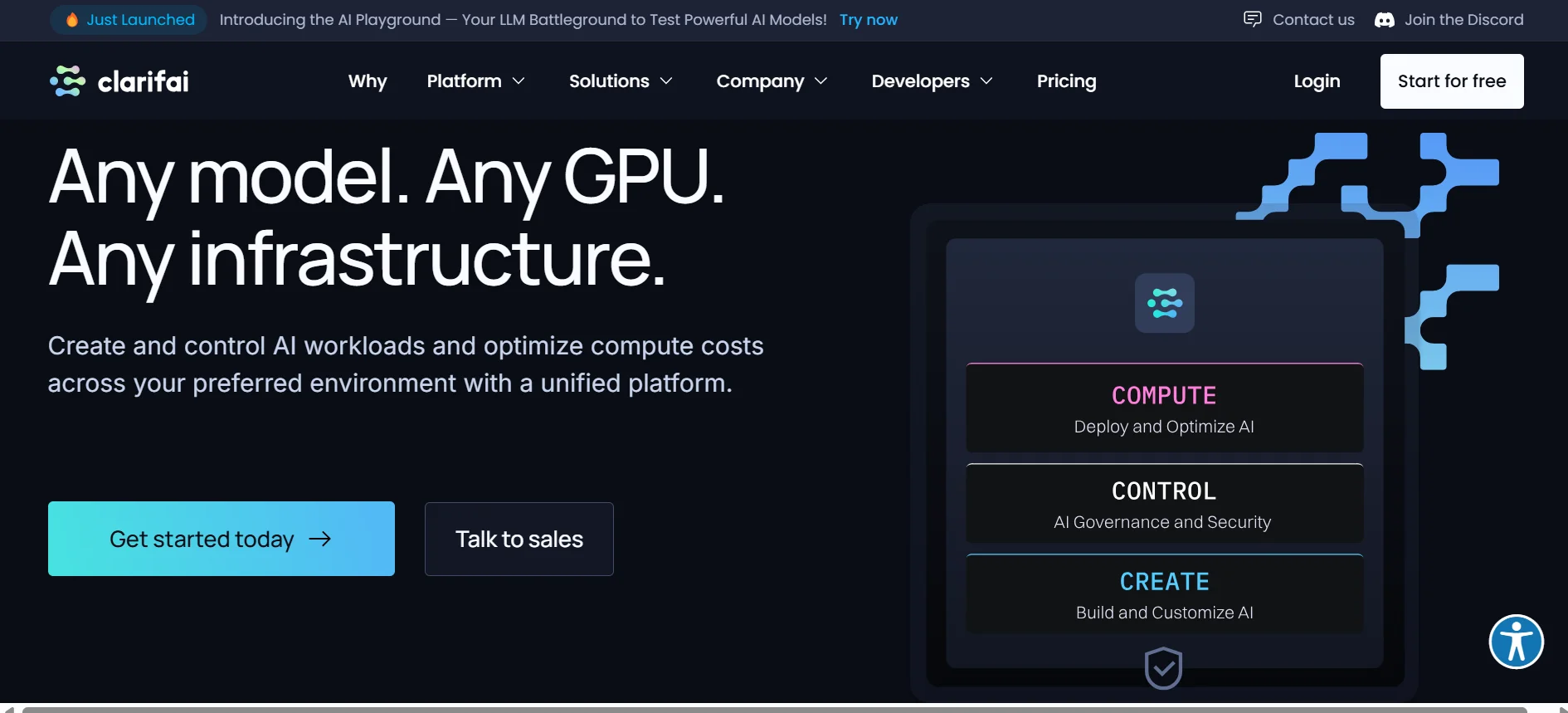
The key feature of Clarifai offers users proper handling capability for textual and visual inquiries. By using AI algorithms, Clarifai provides tagging along with classification and interpretation services, which makes it optimal for industries handling large media content such as real estate, fashion, and digital libraries. You can request Clarifai through AI-generated inquiries such as “What’s in this image?” and “Find similar items,” and it will provide you with its AI-created responses.
How Do AI Question Answer Tools Work?
Even if AI question-answer tools seem magical, there is actual science underlying them.
These tools, at their most basic, take a user-provided query (e.g., “What is machine learning?”), interpret the question, find the best response from the content they have been trained on, and then reply in simple, human-like language.
Here’s a basic, step-by-step breakdown of what occurs:
- Input: A query is typed or spoken by the user.
- Understanding: After reading the query, the AI determines its meaning, or “intent.”
- Searching: It looks through data that has been stored, such as databases, papers, or webpages.
- Responding: It composes a genuine, readable response and provides it either orally or in text.
It takes less than a second to complete this process!
Revealing the AI Question Answering Mechanism
Let us take a closer look at it.
Natural Language Processing (NLP) is a technique used by AI technologies. This enables them to comprehend syntax, sense tone, “read” words like us, and even recognize when we pose a question subtly or informally.
The retrieval or generation stage follows:
The best match is found from its source (such as a paragraph from your website) if the technique is retrieval-based.
If it is generative, such as GPT-based models, it uses the knowledge it has gained from analyzing vast volumes of data to produce a new response.
When the response is prepared, the AI formats it to seem natural, giving the impression that you are speaking with a human rather than a machine.
How AI Understands and Processes Natural Language
AI is quite effective at identifying patterns, but it does not “know” language the way humans do.
These tools learn from vast amounts of data because of machine learning and natural language processing. They receive training on a variety of topics, including books, articles, emails, and customer interactions. Gradually, they start to comprehend:
- Contextual meanings of words
- The operation of grammar
- What kinds of responses do individuals anticipate
- How to respond to various inquiry types and tones
For instance, the AI will identify “product” as something you purchased and “return” as a support term if you ask, “Can I return my product?” After that, it makes the necessary connections to determine or generate a response based on your return policy.
Contextual memory is the ability of sophisticated algorithms to recall past inquiries in a conversation, making your experience more useful and natural.
Join businesses who are currently converting clicks into conversions.
Check out what our valued clients are accomplishing with Heyeve.
Types of Questions AI Question Answer Tools Can Handle
Surprisingly intelligent, AI question-answer tools are capable of handling more than simple “yes/no” queries. Here’s what they can achieve, from basic facts to sophisticated reasoning:
Factual Questions
These are simple inquiries such as “What is AI?” and “When was Google founded?” The AI searches its training data or source content for an exact, verifiable response.
Clarification Questions
The AI system shows the capability to understand user confusion points by receiving statements like “Do you mean X or Y?” so it gives proper clarification.
Complex Queries
These entail several layers or steps. For instance: “What are the differences between machine learning and deep learning, and which is utilized for picture recognition?” AI systems can deconstruct this and provide a clear answer.
Comparative Questions
The dispute lies between choosing GPT-4 or IBM Watson as the superior option. By using appropriate data training, these tools can effectively compare windows and their characteristics, along with their benefits and disadvantages.
Predictive Questions
AI tools featuring prediction functions enable users to ask questions regarding upcoming trends in support tools based on predefined patterns and training insights.
Opinion-Based Questions
AI systems produce properly balanced viewpoints that include both strengths and weaknesses derived from trusted sources, even when their responses might not be factually perfect regarding questions such as “Is AI better than human support?”
Instructional Questions
A customer wants to learn the procedure for website chatbot integration. AI tools generate guide steps for instructions whenever relevant information exists within their databases.
Scenario-Based Questions
Users who forget their passwords should follow which exact steps to retrieve assistance. AI systems can produce process-based simulation responses to different situations.
Reasoning Questions
These call for some reasoning. For example: “What causes AI to have trouble with sarcasm?” Tools such as Dialogflow or GPT-4 can offer well-considered explanations.
Personalized Questions
“Which plan best suits me?” AI tools can provide personalized recommendations if they are linked to user data, which will humanize the experience.
Applications of AI Question Answer Tools
The real business world implements Q&A tools developed by AI technology, which serve both functional and practical purposes. Because of their effectiveness, AI question-answer tools are used in widespread practical applications.
1. Customer Support Automation
Long wait times are over. AI can answer queries about shipping, return policy, and other topics, freeing up your human team to work on more complicated instances.
2. Internal Knowledge Base Access
Users can retrieve instant, accurate content from organizational documents through their direct inquiries to AI tools regarding company policies, procedures, and workflow information.
3. Website Visitor Assistance
AI chatbots provide immediate answers to queries, which helps website visitors make smooth transitions through services while completing functions without experiencing distress.
4. Educational Platforms
Students can obtain simplified explanations of photosynthesis at any time from the AI system.
5. E-commerce Product Guidance
The system assists with questions ranging from choosing laptop specifications to checking blue shirt availability. The combination of AI enhances online shopping by making users more effective in their search and purchasing process.
6. Legal and Compliance Q&A
Legal technology platforms, together with law firms, employ Artificial Intelligence to offer safe responses for contract-related and regulatory matters and compliance verification questions.
7. Healthcare Information Delivery
AI tools function as patient guidance systems that assist users in completing authorized symptom evaluations and understanding insurance terms, and making their appointments without substituting traditional medical care.
8. Technical Documentation Assistance
Through AI-based systems, developers together with customers can locate matching code examples, detect mistakes, and read application manuals.
9. Real-time SaaS User Help
Throughout software applications, artificial intelligence systems guide users through onboarding processes, explain system features, and provide assistance throughout the user workflow.
10. Chatbot-Based Lead Qualification
AI technology enables online visitors to provide information, which helps lead qualification before a human sales team takes over to optimize the sales process.
Benefits of Using AI Question Answer Tools
AI question-answering tools are revolutionary, not merely useful. Businesses, artists, and educators are adopting them for the following reasons:
1. Enhanced Accuracy and Relevance
AI systems extract responses from your real material, like as product sites, documents, or knowledge bases, to provide consumers with precise, comprehensible, and context-aware answers.
2. Increased Efficiency and Speed
Users receive answers instantaneously rather than having to wait for support or search through articles. This translates into happier consumers and quicker problem-solving.
3. 24/7 Availability
Your AI assistant is available 24/7 to assist users, respond to inquiries, and assist guests, regardless of the time of day.
4. Cost Reduction
You can save money on live help by automating frequently asked questions. Your staff can concentrate on high-value, challenging projects if there are fewer support tickets.
5. Improved User Experience
No more confused menus or awkward FAQs. AI provides a conversational, organic experience that makes people feel heard and directed.
6. Scalability for Growing Needs
AI does not slow down if you have 10,000 users or just 10. It can manage several chats simultaneously, without bringing on additional employees.
7. Data-Driven Customer Insights
AI systems monitor frequently asked queries and interaction trends. You may better serve your audience by using this data to understand their needs.
How to Choose the Right AI Question Answer Tool
Users experience difficulty selecting the right tool from the many available options. A tool becomes your best option once it matches your particular requirements. Here’s what to consider:
1. Evaluate Answer Accuracy and Language Understanding
The tool accurately understands the questions posed to it. Choose platforms that offer NLP capabilities that can detect user purpose alongside delivering manual and appropriate responses.
2. Consider Integration with Your Stack
The tool needs to operate smoothly with your existing website, CRM system, your support software, and connected applications. Plugging items into the system results in a smooth usage experience.
3. Look for Customization and Branding Options
Does the technology let users feed it their proprietary information for training? The tool should align with your brand identity in terms of tone and style. When selecting a Q&A solution, it should deliver responses in your voice rather than those of a standard AI robot.
4. Examine Privacy and Security Standards
Review how the platform protects sensitive data from customers while checking that it upholds data protection requirements together with encryption standards.
5. Prioritize Ease of Use and Setup
To develop an amazing assistant, you need not possess development skills. Non-technical users find tools and related features in HeyeveAI, AskAI, and SiteGPT to be their preference.
6. Assess Support, Community, and Documentation
Will you get assistance if you get into trouble? Seek out vibrant groups, practical manuals, and attentive support staff.
7. Compare Pricing for Long-Term Value
A thorough cost comparison requires assessment of both price and offered functionalities. You should pay attention to all features, including available support, along with software changes, as well as system constraints when selecting your enduring AI business relationship.
Why HeyeveAI Stands Out as an AI Question Answer Tool
Out of all the AI question-answer tools we have looked at, HeyeveAI provides a special blend of impact, originality, and simplicity. Why is it unique?
First of all, HeyeveAI is voice-enabled, meaning it can truly talk and listen to your users in real time, going beyond simple chat. The experience feels more engaging and natural as a result. Additionally, it is made for landing page and website optimization, which lowers bounce rates by providing users with intelligent, conversational support. It is ideal for companies, marketers, and service providers seeking an amiable, round-the-clock helper because it is simple to install and can be trained on your content.
Turn bounce rates into conversations with HeyeveAI, a voice-activated assistant that can converse with website visitors.
Challenges Faced by AI Question Answer Tools
Despite their strength, AI tools are not flawless. Here are some typical problems to watch out for.
Data Quality and Hallucinations
AI fails to produce proper results because it lacks the reliable data it needs to refer to. This issue produces both wrong and nonexistent answers from the system. The problem of AI hallucination motivates why one should train their tool with verified content.
Privacy and User Data Protection
When customers provide questions, it automatically triggers the process of data handling. All your AI solutions should maintain adherence to privacy rules that match your industry standards such as GDPR or HIPAA.
Language Ambiguity and Context Gaps
The way humans speak through their language contains numerous informal expressions along with brief expressions and difficult to understand discourse. AI tools encounter difficulties understanding context particularly when they need to handle follow-up questions.
Bias in Training Data
The learning process for AI relies on data, but biased information in the dataset will generate flawed answers. AI providers aim to remove this concern, but the effort represents a continuing operational demand.
Cost of Implementation and Maintenance
AI solution implementation costs for enterprises will include both infrastructure expenditures as well as support expenses on top of basic tool pricing.
Keeping Answers Updated with New Information
The system lacks self-awareness about updates in your organizational policies or content. Regular updating and retraining of your assistant becomes necessary to maintain its relevance.
Conclusion: The Future of AI Question Answer Tools
AI question-answer tools are becoming an essential component of how companies interact with users, consumers, and even internal teams. They are no longer a “nice-to-have.” The future of Q&A systems appears to be bright, quick, and more human than ever before as language models advance and voice AI becomes more natural.
The moment to investigate AI Q&A technologies is now, regardless of your role—startup founder, marketer, educator, or business leader. They do more than simply provide answers; they also improve experiences, make decisions more quickly, and forge closer bonds.
Frequently Asked Questions (FAQs)
What is the best AI question-answer tool for websites?
HeyeveAI is a great option if you are searching for a voice-enabled, simple-to-set-up tool made especially for interacting with website visitors. Without requiring technical expertise, tools like SiteGPT and AskAI are excellent for converting your information into immediate Q&A support.
Can I train AI tools with my content?
Yes, you may upload or connect your data, such as web pages, PDFs, or papers, to a lot of AI question-answer solutions. AskAI, HeyeveAI, and Copilot.Live are example of tools designed to learn from your material and deliver precise, context-specific responses.
Are AI question-answer tools accurate?
AI technologies can be quite accurate if they are educated on trustworthy content. However, the tool’s language comprehension and the completeness or freshness of the data determine the quality of the responses. Using current, well-structured content is therefore essential.
Do these tools support multilingual question answering?
Yes! Many languages are supported by the majority of contemporary AI Q&A platforms, such as Dialogflow, IBM Watson, and Google Cloud AI. HeyeveAI is also extending its ability to provide multilingual text and voice support for audiences around the world.

